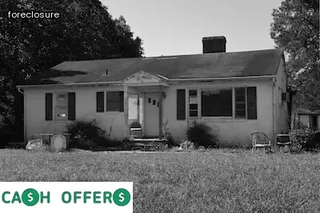When it comes to foreclosure, Maine has a unique set of laws and processes. Understanding the timeline for foreclosure in Maine is key to navigating this difficult process.
In Maine, the foreclosure process begins with a notice of default being sent out to the borrower by the lender. This notice informs the borrower that they are in default on their mortgage and outlines what must be done to rectify it.
Once this notice is received, the borrower has 30 days to respond or make arrangements with the lender to get back on track with payments. If no response is received or no arrangement is made within that time frame, then the lender can proceed with filing for foreclosure in court.
This triggers a 180-day period where no action can take place before an auction can be held. During this period, borrowers may still try to negotiate repayment plans with their lenders or look at other options such as loan modifications or short sales in order to avoid foreclosure altogether.
After the 180-day period has run its course though, if there is still no payment made then an auction will take place and ownership of the property will transfer from borrower to lender at that time. The entire process from start to finish usually takes around 6 months but could be longer depending on each individual situation and how quickly it moves through court proceedings and other necessary steps.

Maine homeowners facing foreclosure should be aware of their preforeclosure options and the considerations that come with them. During this period, homeowners may be able to stay in their homes and avoid foreclosure if they can make payments on a mortgage forbearance agreement or a loan modification.
Homeowners may also choose to pursue a short sale, where they sell the home for less than what is owed on the mortgage, or a deed-in-lieu of foreclosure, where the homeowner transfers ownership of the property back to the lender. It is important to note that these options may require negotiation with lenders, and depending on individual circumstances, preforeclosure options may not be available.
Additionally, it's important to understand that pursuing any of these options could have long-term effects on credit scores and other financial matters. Therefore, Maine homeowners should consult with an experienced housing attorney before making any decisions about their preforeclosure options.
A Breach Letter is an official document sent by the lender to a homeowner in Maine who has defaulted on their mortgage. It serves as a formal warning that the homeowner’s loan payments are overdue, and it also outlines the amount of money that must be paid to bring the loan current.
The breach letter typically gives the borrower 30 days to make up any missed payments or else face foreclosure proceedings. This letter is usually sent at least two weeks before a Notice of Default is filed with the court, so it marks an important point in Maine’s foreclosure process.
It is important for homeowners to take prompt action upon receiving their Breach Letter in order to avoid foreclosure proceedings and keep their home.

Mortgage payments and missed payments in Maine are heavily regulated by state laws. For those in danger of foreclosure, understanding the legal process is key to making sure the property owner's rights are protected.
While most mortgages require timely payment, the state does allow for some leniency when payments are missed or delayed. The homeowner is typically given a grace period before any action can be taken against them and during this time lenders must communicate with borrowers in accordance with Maine law.
If a borrower fails to make payments after the grace period has expired, they will enter into a pre-foreclosure process that could take up to six months depending on the situation. During this time, it is important for homeowners to understand their options and work with their lender to come up with a solution that works for everyone involved.
In Maine, foreclosure is regulated by state law. To complete the process, a lender must file a Complaint in Foreclosure with the court and serve it to the borrower.
The borrower then has 20 days to file an Answer to the Complaint. If no Answer is filed, the lender may ask for a Default Judgment after 30 days.
The borrower also has the right to request mediation within 30 days of being served with the Complaint. After any required mediation is completed or waived, if the mortgage debt remains unpaid, a foreclosure hearing can be scheduled where the judge will decide if foreclosure should proceed.
After the hearing is finished and judgment is rendered, a foreclosure sale date can be set for at least 45 days out from that date. Once a sale takes place, if there are still funds owed on the property after all liens have been paid off, those funds must be returned to the borrower.

Homeowners facing foreclosure in Maine are afforded rights to protect their interests throughout the process. First and foremost, the mortgage lender must provide written notice of its intent to foreclose at least thirty days prior to taking any action.
The homeowner may contest the foreclosure by filing an answer with the court within twenty days of receiving the notice. During this time, they can also submit a request for mediation if they believe a loan modification or other arrangement with the lender is possible.
Furthermore, after filing an answer, homeowners have ninety days from when the notice was received to explore available options such as selling or refinancing their property before the foreclosure can move forward. In addition, lenders must follow certain rules when pursuing a foreclosure sale including providing sufficient public notice and allowing at least fifteen days for bidders to make offers.
To complete the process, lenders must obtain final court approval of any sale before transferring ownership of the property.
In Maine, homeowners facing foreclosure have the right to redeem their property during a period of time known as the redemption period. During this time, a homeowner can work with their lender to bring their mortgage into good standing and avoid foreclosure.
The length of the redemption period in Maine depends on several factors, such as if it's a judicial or non-judicial foreclosure and if the homeowner has filed for bankruptcy protection. In general, however, the state allows for a maximum redemption period of 90 days.
This period begins when the Notice of Foreclosure is served and ends when the Redemption Deed is signed by either the borrower or lender. During this time, homeowners are encouraged to reach out to housing counselors and other financial professionals who may be able to help them stay in their home.
Homeowners should also be aware that if they fail to meet the conditions of their loan agreement within this timeframe, they risk losing their home through foreclosure.

Reinstating a mortgage before the foreclosure sale in Maine is possible if certain conditions are met. Under Maine law, borrowers who default on their mortgages can reinstate their loan by paying the amount they are behind on the loan and any additional costs such as late fees or attorney's fees.
In some cases, this must be done before the foreclosure sale is completed. If a borrower is able to reinstate their mortgage, they can avoid the foreclosure process altogether.
To do so, borrowers must contact their lender and provide proof of payment for all past due payments and associated fees. It is important to note that borrowers must provide this information promptly; otherwise, the lender may proceed with the foreclosure process without considering reinstatement as an option.
Additionally, lenders sometimes require additional documentation or information from borrowers who are attempting to reinstate a loan before foreclosure sale.
In Maine, a deficiency judgment is a court-ordered amount that can be sought by the lender after foreclosure proceedings have been completed. The state does allow lenders to pursue a deficiency judgment in certain circumstances, though the amount of the award and timeline for collection are limited.
In most cases, a deficiency judgment can only be pursued if the property was sold at auction or through an agreement between the lender and borrower. A deficiency judgment must be filed with the court within 6 months after foreclosure completion, and the amount awarded cannot exceed either one year's worth of payments on the loan or two times the fair market value of the property at sale.
Additionally, any deficiency judgment awarded must be collected within 5 years from when it was granted by the court. It is important to note that lenders may still attempt to collect unpaid mortgage debt even if no deficiency judgment is awarded in Maine.

When facing foreclosure, homeowners in Maine have the right to negotiate or mediate with their lender. This is an important step since it can help to avoid foreclosure altogether.
It is important to take action as soon as possible, as lenders may be more open to negotiation if the homeowner takes initiative and engages early on in the process. Homeowners should keep detailed records of all communication with their mortgage lender and should research the laws and available resources in order to understand their rights and options.
The state of Maine offers several mediation services that can help homeowners work towards a favorable resolution. These resources provide a safe, neutral environment for homeowners and lenders to discuss potential solutions without involving lawyers or other third parties.
Homeowners should also explore other options such as refinancing or loan modifications which could potentially reduce payments or even eliminate debt altogether. By taking advantage of these options, homeowners can often prevent foreclosure proceedings from occurring in the first place.
For those facing foreclosure in Maine, it is important to know that help is available. Seeking assistance from a qualified foreclosure lawyer can be the best way to ensure that your rights are being protected throughout the process.
A foreclosure lawyer has is knowledgeable about the state's mortgage foreclosure laws and processes, as well as what options may be available to provide relief from debt obligations. When looking for a qualified legal advisor, it is important to pay close attention to their experience and qualifications in order to make sure they have the skills necessary to offer valuable advice on how best to proceed with your case.
Additionally, you should ask for references and check for reviews online so that you can get an unbiased opinion about the lawyer's services. With the right guidance and support, it is possible to successfully navigate through a foreclosure in Maine.

Facing a foreclosure can have a substantial and long-lasting impact on your credit score. The process of foreclosure in Maine is lengthy and complex, taking anywhere from 140 days to two years or more.
During the process, lenders report late payments and other negative information to the credit bureaus, which lowers your score. If your mortgage goes through foreclosure, it will remain on your credit report for seven years and can have a serious effect on future borrowing power.
It’s important to note that even if you enter into a loan modification agreement with the lender or sell the home to pay off the debt, this information still remains on your credit report. The only way to remove this is to dispute any inaccuracies contained in the report with the credit bureau directly.
The tax implications of a foreclosed property in Maine can be complex and are often overlooked. In general, income taxes may be due on the difference between the amount owed on the mortgage and the sale price of the foreclosed property.
Additionally, any unpaid real estate property taxes associated with the foreclosure will become the responsibility of the new owner. Furthermore, if a homeowner has not been able to make their mortgage payments for an extended period of time, they may be subject to tax levies imposed by local governments.
Finally, homeowners should also be aware that if they do receive any proceeds from a foreclosure sale, those funds may be considered taxable income by the IRS.

When looking into the length of time it takes for a foreclosure to take place in Maine, there are several factors to consider. These include the type of mortgage loan, what state laws apply, and the specific foreclosure process being used by the lender.
The type of mortgage loan is important because different types have different rules regarding foreclosure timelines and processes. Additionally, Maine’s mortgage foreclosure laws can affect how long it takes for a foreclosure to occur.
For example, Maine requires lenders to provide borrowers with a written notice of default before they can initiate any legal action against them. In addition, lenders must wait until at least 45 days after sending this notice before they can start the actual foreclosure proceedings.
Finally, depending on the particular process being used by the lender - such as judicial or non-judicial - it can also determine how quickly or slowly a foreclosure will take place in Maine. Understanding these factors is key to determining an estimated timeline for any given situation.
Once a foreclosure auction has been unsuccessful, the process of foreclosure is not yet over. In Maine, the next step in the foreclosure process is to have a deficiency judgment entered against the borrower.
This will require a hearing before a judge, who will decide if the borrower owes any additional money beyond what was paid at the auction. If so, then this amount must be paid or else further legal actions may be taken by the lender to collect on the debt.
Once that step is complete, the foreclosure process is officially over and ownership of the property is transferred from the borrower to either a third-party buyer or back to the lender. Before going through with any of these steps though, it's important for borrowers in Maine to thoroughly review their state's mortgage foreclosure laws and processes in order to understand their rights and obligations during this difficult time.

Once a foreclosure auction has taken place in Maine, home owners have specific eviction rights that must be observed. This ensures that the evicted homeowner is given reasonable time to vacate the property and remove any personal belongings.
Maine law states that if the winning bidder of the foreclosure auction is an individual, they must provide the evicted homeowner with at least 30 days notice before they can take possession of the property. If a mortgage lender is the successful bidder, they must provide an additional 60 days' notice before being able to evict the homeowner.
The state also requires that all foreclosures be managed by a court-appointed attorney who will oversee any disputes or questions regarding eviction rights. Homeowners who are facing foreclosure should contact their local court to ensure they are aware of their eviction rights under Maine law.
Maine's mortgage foreclosure laws consider bankruptcy filings when considering the foreclosure process. Depending on the type of bankruptcy filed, a Chapter 7 or Chapter 13, a homeowner may be able to temporarily halt or delay a foreclosure.
A Chapter 7 filing allows for the forgiveness of some debts and liquidation of assets, while a Chapter 13 filing is essentially a court-approved repayment plan to pay back creditors. In either case, once a bankruptcy is filed, creditors cannot pursue collection activities without permission from the court.
This means that they are not allowed to take collection actions such as foreclosures until the bankruptcy process is completed. Bankruptcy proceedings can last up to several months and any activity related to the foreclosure must cease in order for it to be considered complete.
In addition, if a homeowner is successful in their bankruptcy filing, the debt associated with their mortgage may be forgiven and they will no longer owe what was owed prior to filing for bankruptcy protection.

Maine's Fair Debt Collection Practices Act (FDCPA) sets out the rights of borrowers in foreclosure proceedings. The FDCPA is a federal law that applies to all states, so it is important for Maine homeowners to understand their rights and responsibilities under the law.
Under the FDCPA, debt collectors must follow certain rules when collecting debts, including notifying borrowers of their right to dispute a debt and providing verification of the amount owed. Additionally, debt collectors are prohibited from using harassing or abusive language or tactics when collecting a debt.
Furthermore, a debt collector may not take any action that would disrupt a borrower's employment or personal property. Finally, the FDCPA also requires that debt collectors provide certain notices to borrowers before initiating foreclosure proceedings and provides certain protections for borrowers who are facing foreclosure.
This includes allowing borrowers to cure the default within a specified period of time and providing an opportunity for mediation with creditors prior to foreclosure proceedings being initiated. Understanding these protections can help Maine homeowners navigate the foreclosure process more effectively and protect their rights throughout the process.
Maine has strict laws and processes when it comes to mortgage foreclosures. It’s important to understand the federal laws as well as the state laws in order to navigate the foreclosure process.
Federal residential mortgage laws govern things like consumer protection, loan origination, and loan servicing. The federal government also provides certain protections to consumers such as a right of rescission, where a borrower can cancel a transaction within three days of signing a loan document if they have second thoughts about it.
Additionally, there are rules that protect borrowers from foreclosure under certain circumstances, such as if they have become unemployed or been on active duty with the military. All lenders must comply with these rules when providing loans and services in Maine.
These federal regulations also require lenders to provide clear disclosure documents before signing any agreement so that borrowers understand their rights and responsibilities with regard to their mortgages. Knowing how these laws apply in Maine can help ensure that homeowners receive fair treatment during the foreclosure process and make sure they understand their rights and obligations throughout this difficult time.
Maine’s foreclosure process is a complicated one, with laws and processes that must be followed in order to complete the foreclosure successfully. Foreclosure in Maine is a legal process during which a homeowner loses his or her home to the bank or other lender when they are unable to pay their mortgage payments.
The process begins with defaulting on the loan and then moving through all of the necessary steps that lead to foreclosure. Generally speaking, it can take anywhere from several months to over a year for a foreclosure to be completed in Maine; however, this time frame can vary depending on the circumstances of each individual case.
It’s important for homeowners facing foreclosure in Maine to fully understand the law and processes involved before starting down this path, as failure to do so could result in further delays or even prolonged legal action. With a better understanding of Maine’s mortgage foreclosure laws and processes, homeowners can prepare themselves for what lies ahead and find ways to minimize any potential damage caused by this difficult situation.

Stopping a foreclosure in Maine is possible but it can be difficult to do without the help of an experienced attorney. In order to stop a foreclosure, you must take action and understand the state's mortgage foreclosure laws and processes.
A good first step is to contact your lender or mortgage servicer immediately and discuss potential options for avoiding the foreclosure process. It’s also important to keep track of all correspondence with your lender, including any paperwork you provide them.
If your lender agrees to work with you, they may propose a loan modification or forbearance agreement that could stop the foreclosure process. Alternatively, you may be able to negotiate a deed-in-lieu of foreclosure agreement which would allow you to transfer ownership of the property back to your lender.
You could also pursue Chapter 13 bankruptcy protection if you have sufficient income and assets to make payments on your debt over time. Ultimately, understanding how long a foreclosure takes in Maine and the steps necessary for stopping one can help you determine the best course of action for preserving home ownership.
In Maine, the amount of months you can be behind on your mortgage payments before entering foreclosure depends on whether or not you are a willing seller. If you are willing to sell your home, the lender may give you up to six months to pay off the balance due and avoid foreclosure.
If you are not willing to sell, foreclosure proceedings could begin after three missed payments in succession. It is important to note that lenders do have the right to foreclose on a loan without waiting for multiple missed payments if they believe it is necessary.
By understanding the state's mortgage foreclosure laws and processes, homeowners can better prepare themselves for any eventuality regarding their loan.
Maine is one of the states that has the longest foreclosure process in the United States. According to Maine's mortgage foreclosure laws, this type of process can take anywhere from four months up to two years or more.
The length of time it takes for a foreclosure to be completed depends on a variety of factors, including how quickly lenders respond to paperwork and court proceedings. Additionally, it also depends on how compliant the borrower is with their lender's requests and deadlines.
The entire process typically starts after a borrower has missed multiple mortgage payments. During this period, lenders will send out notices and begin communication with borrowers to try and work out some kind of arrangement.
If no arrangement can be made, then lenders may move forward with the foreclosure process. This involves filing suit in court and obtaining a judgment for foreclosure from the judge presiding over the case before any actual repossession can take place.
Once a judgment is granted, lenders will have an allotted amount of time (determined by state law) to complete the process before they are forced to restart it again from square one.
A: The foreclosure process in Maine typically takes between 120-150 days, depending on whether or not the borrower is able to work out an agreement with their lender.
A: Under Maine's mortgage foreclosure laws and processes, the typical foreclosure process can take anywhere from two to six months.